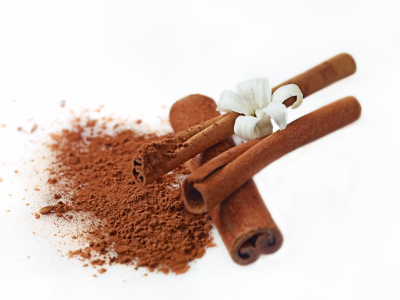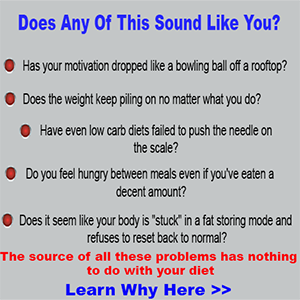The Mysterious Health Benefits of Cinnamon
Cinnamon is one spice almost everyone has in their kitchen cupboard. Whether it’s used to create hot, delicious, apple cider on a cold winter day, or is added to toast with butter and brown sugar, it actually has several health properties we can all benefit from, while making our food taste (and smell) extraordinary.
Cultural uses for cinnamon
This warming spice has been in use by different populations around the world for thousands of years; it’s been mentioned in ancient Chinese writings and is spoken of several times within the Bible. Moses wrote of cinnamon as a major ingredient in the “holy anointing oil” used to bless his people.
Different species of the cinnamon plant are native to areas in South East Asia, mainly Sri Lanka, Indonesia, Ceylon and Burma, although it’s also grown in Brazil and the Caribbean too. It’s popular smell has made it a favorite among many cultures and populations.
As a flavoring agent, cinnamon is preferred for adding spice to sweet dishes and baked goods, like apple pie and sticky buns, but it is also used to spice meats and whole grain dishes (rice), and create fragrant curries.

Health properties
Over the thousands of years cinnamon has been around, it’s been used in many different applications, such as:
• Reduces mold growth in bread products (is a fungicide)
• Can increase resistance to and help fight the common cold by battling congestion and inducing perspiration
• Reduces body temperature due to fever
• Alleviates mental stress
• Improves memory and attention
• Relieves joint pain due to arthritis
• Reduces headaches and migraines
• Can treat diarrhea, nausea, vomiting and flatulence
• And will freshen your breath when chewed (like cinnamon gum!)
Blood sugar regulation benefits
More recently, scientists have shown benefits of cinnamon for preventing and treating blood sugar abnormalities that lead to Metabolic Syndrome and diabetes. Metabolic Syndrome is a cluster of symptoms that highly predispose a person to more chronic diseases, and include insulin resistance, elevated glucose, dyslipidemia, inflammation, decreased antioxidant activity, obesity and increased glycation of body proteins.
In several different cell, animal and human whole body studies, cinnamon has been shown to improve these variables. It also has been shown to improve fasting blood glucose levels, lean body mass, blood pressure and gastric (stomach) emptying in people with and without type 2 diabetes and polycystic ovary syndrome.
In a recent review of studies conducted between 2003 and 2008, two studies of patients with type 2 diabetes and one study of people without diabetes showed that cinnamon supplementation significantly reduced fasting blood glucose concentrations by 8-29% (the reduction was greater for those with higher fasting levels at baseline).
Doses of cinnamon used in these studies ranged from 1 gram to 6 grams. More significant results were found with higher doses rather than lower. In three studies that did not show any significant effects, they used lower doses but did show trends for reduced hemoglobin A1c levels (a marker of long term blood glucose balance) and morning fasting glucose measurements - a trend tells us that the results are moving in the right direction even though statistics do not say they were significant enough.
Overall, there’s not enough solid evidence to make definite conclusions about cinnamons ability to prevent or treat diabetes, but it does show much promise and there are several ways it can potentially modify one’s risk factors for this disease. Some of the mechanisms include:
• Delayed stomach emptying which can reduce the rate of absorption of glucose from food and prevent increases in blood triglycerides (excess blood glucose is converted to fats within the liver)
• Flavanoid-supressed glucose absorption – the compounds in cinnamon can reduce food sugar uptake intrinsically (to an extent; it won’t work if you take in excessive amounts of sugar)
• Polyphenols in cinnamon can mimic the effects of insulin on cellular blood glucose uptake through a number of different pathways
Another factor to consider with any cinnamon dose is the molecular concentration of the active components: various polyphenols which give cinnamon its therapeutic benefits. Some studies that show little effect on blood glucose regulation could possibly be because of low active component content. Thus, higher doses are usually more effective than lower ones – likewise, higher-quality concentrated cinnamon products are also more useful.
Finally, taking cinnamon with meals has the ability to slow gastric emptying and reduce glucose absorption more than if it is taken separate from food. Therefore, with supplements, it’s best taken when you eat, rather than on an empty stomach. Supplements may also be preferable to cinnamon added to foods due to the fact that enzymes in saliva may inactive some of the polyphenols, making it less potent.
Weight loss advantages
Through effects of slowing food glucose absorption, and enhancing the body’s ability to use glucose in metabolically active cells via direction of insulin, rather than store it away as fat, cinnamon improves body composition. The body accumulates less fat as a result of ideally-regulated blood sugar concentrations.
A handful of animal and human research has shown these effects – more studies may have also seen these results, but they were not reported as weight and body composition was not the primary outcome of interest.
However, as noted above, cinnamon given therapeutically can improve glucose use and blood concentrations, which are known to favorably influence body fat levels (causing body fat levels to decrease – which is much of the premise of lower carbohydrate and lower glycemic index diets).
Summary
In conclusion, when cinnamon is used alongside other nutritious food options, like oatmeal with whey protein, instead of sugary treats, it can actually improve our health. However, not many of us use it on (or in) enough foods or in high enough quantity to make it functional.
If you choose to use food-sourced cinnamon, buy a high quality brand of cinnamon sticks (correctly called quills) or powder, and keep it in an air-tight container away from light.
Some other ideas for adding cinnamon to food include: added to unsweetened coffee or tea at breakfast, sprinkled on unsweetened applesauce, whole peaches or pears, used in whey protein smoothies, or even added to your scrambled eggs in the morning or at night!
Bottom line: use cinnamon wisely in conjunction with a balanced, unprocessed eating regimen, and a smaller waistline could be yours in less time than you think.
About Jayson Hunter & Jaylab Pro

Jaylab Pro was founded by Registered Dietitian Jayson Hunter. Jayson has been recognized as one of America's foremost weight loss experts by America's Premier Experts™. He has also been featured in USA Today for this accomplishment. Jayson is also a best-selling author having co-authored multiple books in health & fitness and business growth. Jayson and the Jaylab Pro team are proud to create content that helps improve the lives of millions of people around the world. We hope you enjoy it just as much as others have.
 If you order a JayLabPro SmartShip product or any Combo Package, we will automatically ship you a new supply of the product or products you have ordered every month, starting 30 days after your initial order is shipped, and continuing until you cancel. The credit card you are using today will be billed the lowest available price for those product or products when your order is shipped, but shipping will be FREE. You may log into your customer account or call our customer service department toll-free at 1-888-9GETPRO (1-888-943-8776) between the hours of 8am – 9pm EST Mon-Fri to cancel future shipments, customize the timing of your shipments, or change the credit card used for billing.
If you order a JayLabPro SmartShip product or any Combo Package, we will automatically ship you a new supply of the product or products you have ordered every month, starting 30 days after your initial order is shipped, and continuing until you cancel. The credit card you are using today will be billed the lowest available price for those product or products when your order is shipped, but shipping will be FREE. You may log into your customer account or call our customer service department toll-free at 1-888-9GETPRO (1-888-943-8776) between the hours of 8am – 9pm EST Mon-Fri to cancel future shipments, customize the timing of your shipments, or change the credit card used for billing.




.png)





